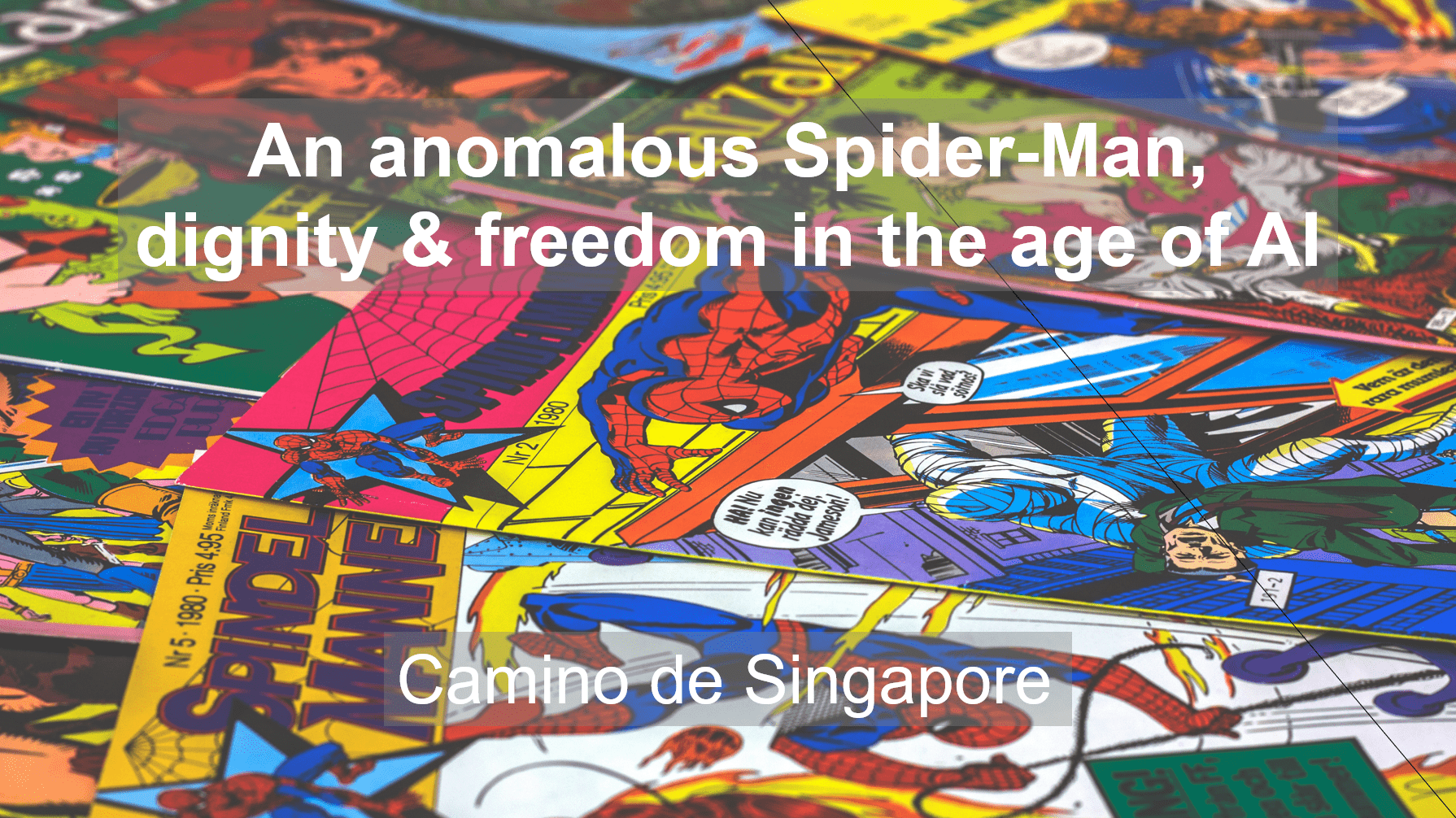No products in the cart.

Photo by https://unsplash.com/@venczakjanos
Warning: This contains spoilers for the movie Spider-Man: Across the Spider-Verse
A recent Spider-Man movie by Sony made a huge splash. The film itself was very well-made; I saw no unnecessary scenes and heard no cheesy lines. It also marked a new level of skill in bringing comic art into the screen. Most interestingly, there were a number of relevant themes explored in the film for conversations on contemporary social issues.
Given the ongoing buzz on AI technologies, including a chat service that can write homilies for priests, one theme left a particularly strong impression on me. At the climax of the movie, the protagonist, Miles Morales’s Spider-Man, had to escape capture by a large number of Spider-People from various universes. What sparked the chase was the decision of Miguel O'Hara’s Spider-Man, their leader, to prevent Miles Morales’s Spider-Man from returning to his home universe and saving his father from impending murder. Due to his tragic past experience, as well as calculations by his AI assistant, Miguel believed that Miles’s father was fated to die. If they were to interfere with this destiny, universes might collapse and countless number of people would die. For Miguel’s Spider-Man, given his (self-appointed) role as the caretaker of these universes, this risk was unacceptable. It was obvious to him that sacrificing only one life was the logical choice. However, Miles disagreed that his father’s life should be forfeited because an AI calculation said so and rebelled. Thus, a difficult question was raised. As AI technology continues to improve, there will be more tools that can absorb unbelievably huge amounts of data to make calculations and predictions that are impossible for the human mind to do. Once we have the technology, should we be able to compel a person to choose against their will for the greater good because our sophisticated AI tools have computed the most optimal solution for everybody?
While there are no perfect answers for every situation, the Catholic Church’s social teachings can help us navigate these complex questions. The Church teaches that every human person has inalienable dignity because every person is made in the image of God. This dignity is so great that man and woman, in the creation story found in the Book of Genesis, could freely choose to disobey God, their creator, with devastating consequences for all of creation. They were not mere robots who had to follow every one of God’s instruction. (Contrast this with the Babylonian myth, Enuma Elish, where humans were created to be slaves of gods.) Fortunately for us, however, God still cleaned up the mess by sending his own Son.
From this perspective, if God were the leader of the Spider-People, he would have let Miles Morales’s Spider-Man make his own choice. I’m not saying that we should ignore risks and consequences. Reasonable calculations should be made when useful. But as explored in a radio programme by NPR, there are inherent problems with the idea of trying to predict the future based on past patterns. Indeed, a Spider-Woman in the movie asked Miguel about the ramification of saving Miles’s father, “Do you know for certain?” On the other hand, everyone was certain that Miles’s father was going to be murdered if no one intervened.
Now, the film didn’t stop there in exploring this issue of self-determination in the era of AI. Miguel O'Hara’s Spider-Man revealed at the end that Miles was never meant to be a Spider-Man if not for a freak accident. For him, Miles’s Spider-Man was an anomaly that was contaminating universes. This was a painful reality to swallow for Miles, especially because he was the biracial son of an African-American father and a Spanish-speaking Puerto Rican mother. Even today, persons with this background are often socio-economically disadvantaged. When this context is considered, Miguel’s decision, even if unintentional, took on another layer of meaning. Miles already belonged to a demographic group that was often marginalised by the more dominant groups. And then, for the sake of the greater good, he was being asked to let his father die and live in a single-parent family. Forcing him into such a life would make him even more marginalised, and this is contrary to the message of the gospel.
For we know, as Christians, that someone in the Scriptures identified with the most marginalised and vulnerable in society. He said, “Truly I tell you, just as you did it to one of the least of these brothers and sisters of mine, you did it to me.”Erwin Susanto is a staff member of Caritas Singapore. He enjoys arcane discourses on Old Testament/Hebrew Bible in the context of the Ancient Near East. He also enjoys thinking about all kinds of contemporary issues and sometimes wonders if punditry is fun.
